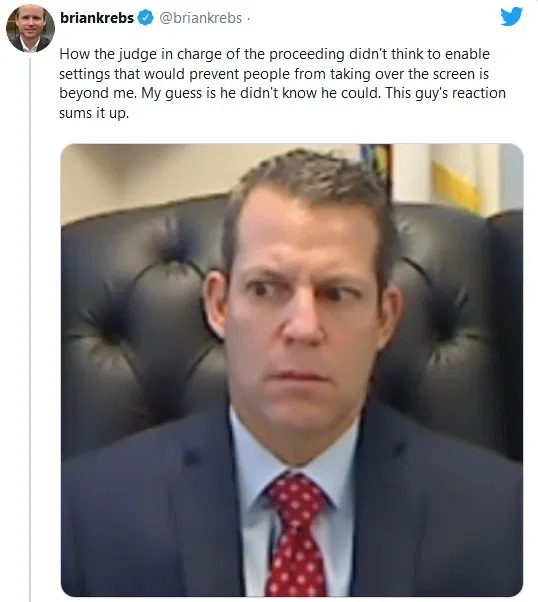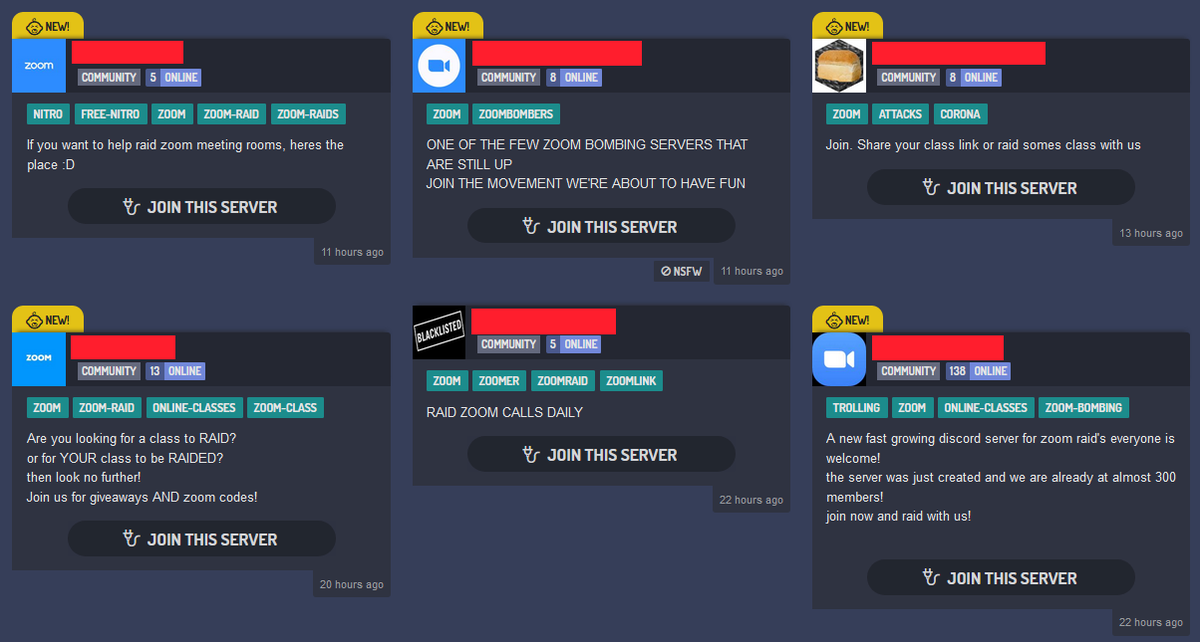Since April this year, Zoom has been protecting all conferences with a mandatory six-digit numeric password, and the developers have introduced this protection measure because of the so-called Zoom-Bombing. Now, in addition, Zoom will warn users about possible troll attacks.
The fact is that before the implementation of this protective measure, third parties often joined Zoom videoconferences (online lessons, business meetings, and so on) in order to disrupt the meeting or just for fun. Often, recordings of such pranks later appeared on the network and spread on social networks.For example, in the spring, an American congressman said that attackers managed to disrupt a Zoom meeting held at the highest levels of the US government. A letter about the incident was sent to the chairman of the Ohio House of Representatives oversight committee.
Another notable incident of this kind: the remote consideration of a possible release on bail for 17-year-old Florida resident Graham Ivan Clark, who is accused of the largest attack on Twitter.
Due to the coronavirus pandemic, the hearing was held remotely, and as a result, Judge Christopher Nash was forced to suspend the hearing altogether. The problem was that the conference was not secured as the hearing was public.
“For some reason, the settings were not muted for visitors, and they were not prohibited from occupying the screen. That is, anyone could join the conference, and the trolls immediately took advantage of this”, – wrote the media.
As a result, numerous prankers introduced themselves as CNN and BBC employees, interrupted the meeting with shouts and loud music, and then began broadcasting pornographic videos.

As trolls are still a big problem for Zoom and its users, this week the developers introduced the new At-Risk Meeting Notifier feature.
“The new security mechanism runs on the Zoom backend and monitors publicly accessible posts on social media and other ‘public places’. If the URL for a Zoom meeting is found among the messages, the At-Risk Meeting Notifier will automatically send an email to the organizers of that meeting and alert them that outsiders may access the meeting and might try to disrupt it”, – say Zoom representatives.
The fact is that recently, Zoom-Bombing has been happening mainly due to the fact that one of the conference participants shares a link to it (and sometimes his password) on social networks, Discord channels or on Reddit.
Sometimes this happens out of ignorance, but sometimes people post such links intentionally and ask others to disrupt the conference.

With the new feature, Zoom developers hope to reduce the number of troll attacks. The new feature is enabled by default and users do not need to take any action to activate it.





